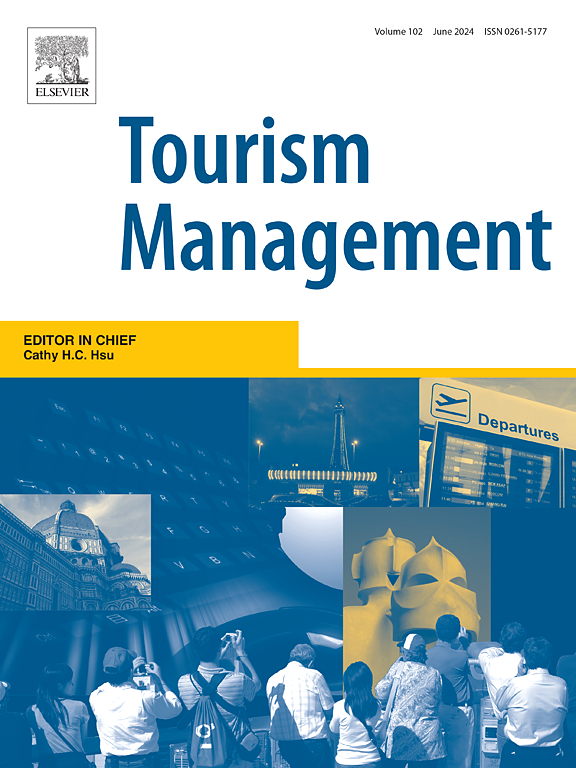Wokeness in tourism management: Perceptions, attributes, and consequences
IF 10.9
1区 管理学
Q1 ENVIRONMENTAL STUDIES
引用次数: 0
Abstract
Recent media articles highlight the rise of wokeness measures in the tourism and hospitality industry. Although the wokeness perspectives of the organization and travelers have been examined in this industry, employee voice has largely been ignored. This study aims to examine the different perceptions, attributes, and consequences of wokeness in the tourism and hospitality industry from the perspective of employees. A longitudinal qualitative research approach was adopted in which data collection was done through three studies conducted over more than two years using the open-ended essay method. Critical race theory (CRT) was used to explain the data. Wokeness is perceived to be a processual phenomenon in which different sources of wokeness and extents of authenticity are present. The consequences of implementing wokeness measures in tourism and hospitality organizations suggest that wokeness can have advantages as well as disadvantages. The study furthers the understanding of wokeness in the tourism and hospitality industry by clearly elucidating the voice of the insiders in an organization – its employees. Wokeness is perceived to be a multi-dimensional phenomenon emanating from internal and external sources, which could be authentic or inauthentic and can have advantages and disadvantages. Management can utilize the insights to consider woke initiatives and practices to improve employee and customer experience.
旅游管理的觉醒:感知、属性和后果
最近的媒体文章强调了旅游业和酒店业觉醒措施的兴起。虽然这个行业已经研究了组织和旅行者的觉醒观点,但员工的声音在很大程度上被忽视了。本研究旨在探讨不同的观念,属性,并从员工的角度来看,在旅游和酒店业的觉醒的后果。采用纵向定性研究方法,通过使用开放式论文方法进行为期两年以上的三项研究来收集数据。采用临界种族理论(CRT)对数据进行解释。清醒被认为是一种过程现象,其中存在不同的清醒来源和真实性程度。在旅游和接待组织中实施唤醒措施的结果表明,唤醒既有好处也有坏处。该研究通过清楚地阐明组织内部人士-其员工的声音,进一步了解了旅游和酒店业的觉醒。清醒被认为是一种从内部和外部来源发出的多维现象,它可以是真实的或不真实的,可以有优点和缺点。管理层可以利用这些见解来考虑唤醒的计划和实践,以改善员工和客户体验。
本文章由计算机程序翻译,如有差异,请以英文原文为准。
求助全文
约1分钟内获得全文
求助全文
来源期刊

Tourism Management
Multiple-
CiteScore
24.10
自引率
7.90%
发文量
190
审稿时长
45 days
期刊介绍:
Tourism Management, the preeminent scholarly journal, concentrates on the comprehensive management aspects, encompassing planning and policy, within the realm of travel and tourism. Adopting an interdisciplinary perspective, the journal delves into international, national, and regional tourism, addressing various management challenges. Its content mirrors this integrative approach, featuring primary research articles, progress in tourism research, case studies, research notes, discussions on current issues, and book reviews. Emphasizing scholarly rigor, all published papers are expected to contribute to theoretical and/or methodological advancements while offering specific insights relevant to tourism management and policy.
 求助内容:
求助内容: 应助结果提醒方式:
应助结果提醒方式:


